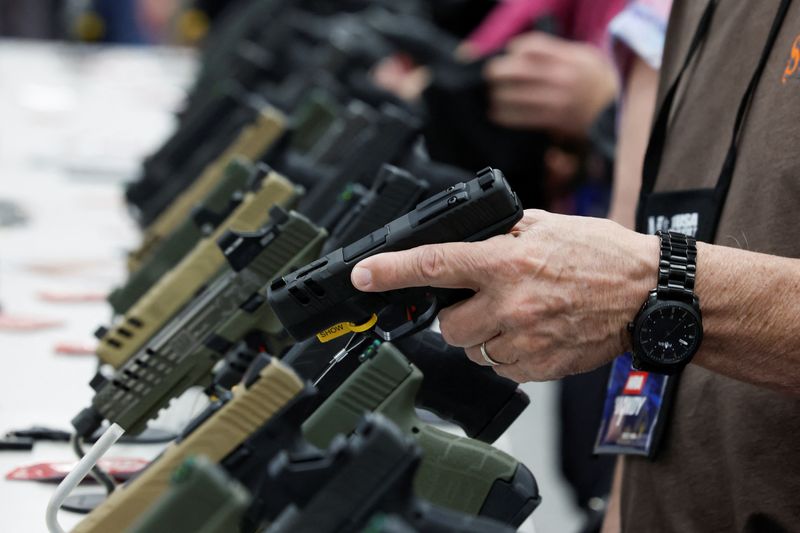By Brendan Pierson
(Reuters) - The U.S. government cannot ban people convicted of non-violent crimes from possessing guns, a federal appeals court ruled on Tuesday.
The 11-4 ruling from the Philadelphia-based 3rd U.S. Circuit Court of Appeals is the latest defeat for gun control laws in the wake of a U.S. Supreme Court ruling last year expanding gun rights nationwide.
The decision stems from a 2020 lawsuit by a Pennsylvania man, Bryan Range, who was barred under federal law from possessing a gun after pleading guilty to welfare fraud. He claimed the prohibition violated his right to bear arms under the Second Amendment of the U.S. Constitution.
"We are very pleased that the 3rd Circuit has vindicated the rights of our client by faithfully applying the Supreme Court's decision," Range's lawyer, Peter Patterson, said in an email.
The Bureau of Alcohol, Tobacco, Firearms and Explosives, which enforces federal gun laws, declined to comment.
Range pleaded guilty in 1995 to committing welfare fraud in Pennsylvania in order to obtain $2,458 of food stamps, a misdemeanor punishable by up to five years' imprisonment. He was sentenced to three years of probation.
Federal criminal law generally bars people convicted of crimes punishable by more than a year in prison from possessing guns. Such crimes are usually felonies, but the law also includes some state misdemeanors, like Range's.
A federal judge ruled against Range in 2021. Last June, however, the U.S. Supreme Court ruled that the Second Amendment protects individuals' right to carry guns in public for self-defense, and that any restrictions on that right must be consistent with the nation's historical tradition of gun regulation.
Circuit Judge Thomas Hardiman wrote for the majority on Tuesday that the government had failed to point to any laws from the United States' founding establishing a tradition of disarming non-violent criminals.
Four judges dissented.

"Where, as here, the legislature has made a reasonable and considered judgment to disarm those who show disrespect for the law, it is not the place of unelected judges to substitute that judgment with their own," wrote Circuit Judge Cheryl Ann Krause, one of the dissenters.
(This story has been corrected to rectify the author of majority opinion in paragraph 9)
